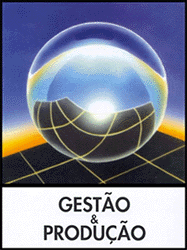Abstract
Textile industries use large amounts of water in the processes of dyeing and processing of textile fibers, generating high volumes of wastewater containing dyes, surfactants, inorganic ions, wetting agents, among others. The main environmental impact of these effluents is related to the absorption of light into the water, which interferes with the photosynthesis of plants and algae. Therefore, it is relevant to have environmental planning aimed at the reuse of the water, increased removal of dyes, as well as reducing losses in the dyeing. In this work, studies were undertaken to propose control measures so as to introduce the concepts of Cleaner Production (CP) in the textile sector. Data was collected in a company located in the catchment area of the river Doce, in Minas Gerais, and established the association of the relative advantages of conventional coagulation/flocculation with the combined use of Advanced Oxidation Processes (AOP). The proposed measures entail a decrease in the volume and characteristics of the refractory sludge generated and the possibility of recirculation of treated effluent. The need to develop pilot-scale experiments was identified, including monitoring of the acute toxicity of treated effluents.
Keywords:
Textile industries; Recalcitrant compounds; Advanced oxidation processes; Decontamination; Eco-efficiency

 Thumbnail
Thumbnail
 Thumbnail
Thumbnail
 Thumbnail
Thumbnail
 Thumbnail
Thumbnail



